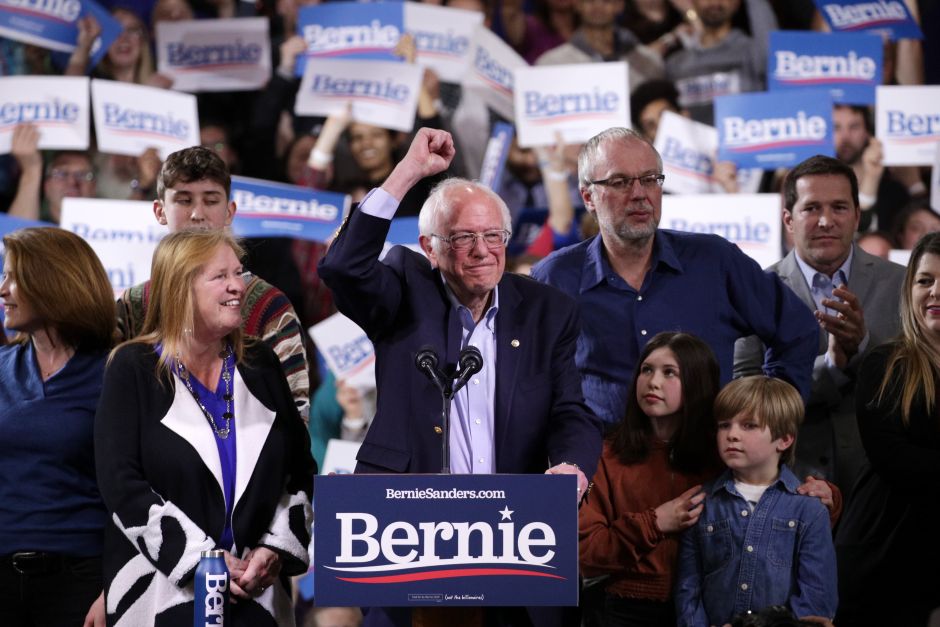The rejection of Trump and the inspiration aroused by Sanders mobilize the community.
As he had anticipated in the polls, Bernie Sanders won the primary elections in California, getting the support of 119 delegates with 33.6% of the votes, while his closest opponent, Joe Biden obtained 57 delegates with 24.9% of the vote.
In the largest state in the nation, the formula of young people and Latinos was repeated, which led him to victory in Nevada with 47%. But overall, according to the first reports, Latinos of all ages in California gave Bernie the vote.
According to experts in the field, In these primary elections in California, Latinos made themselves heard.
"Last night and across the states where primary elections were held, Latinos showed they are tired of the cruelty of the last four years," said Mario Carrillo, campaign manager for the America’s Voice organization.
In both Texas and California, as well as in the Latino communities in North Carolina, Virginia, Utah, Colorado, and wherever they were, Latinos made their voices heard in what will be one of the biggest consequences of our time, he added.
Fernando Guerra, the professor of Political Science and Chicano Studies at Loyola Marymount University (LMU), said Bernie won the California Grand Prix for the support of the Latino vote as happened in Colorado and almost all of Texas.
“It's authentic and talks about the issues that impact the community. The election in California was against Trump and because Latinos believe in Bernie. ”
However, the professor was very clear in saying that not only the leaders of the Democratic party are those who do not want Bernie to be the nominee for the presidency but the majority of Democratic voters who have not supported him in the primaries.
"I personally voted for Bernie, but I have to admit that there are other ideas and ideologies that think their candidates are better," he said.
But the interesting thing is that “Super Tuesday” showed that Latinos are voting, and the support of this group for Bernie indicates that he is a candidate who communicates with Latinos and they have responded by giving him his vote.
“The other candidates have a lot to learn from Bernie regarding communication with Latinos. Bernie has taught him that if they communicate with them, they will go out to vote, ”said the academic.
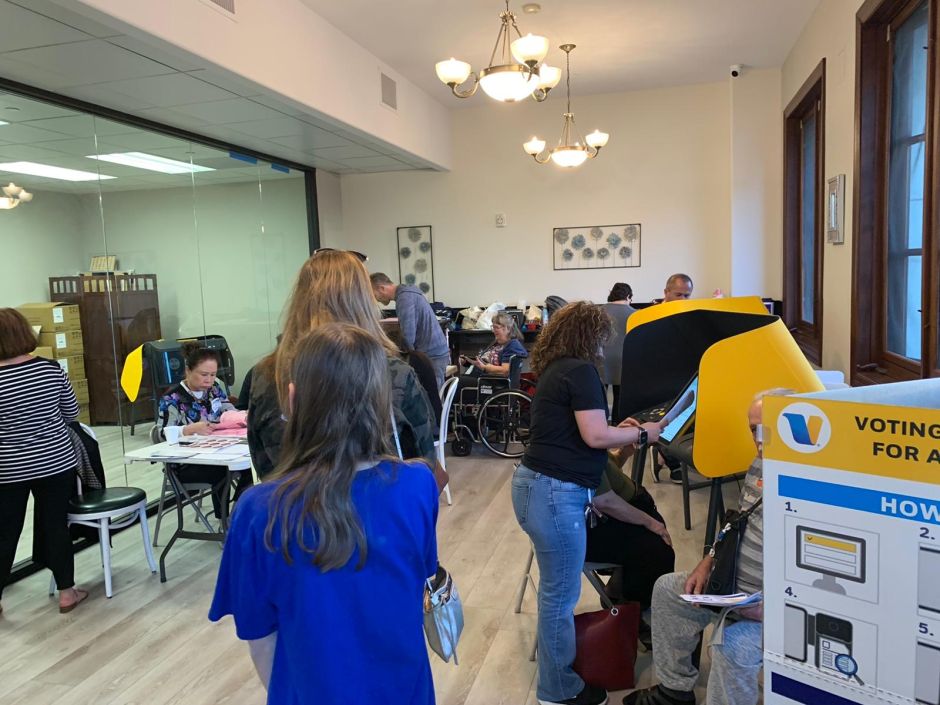
A long day
Large ranks were observed in the polling stations in Los Angeles County and there were waits of up to three or four hours to vote due to technical problems with the new touch screen-based voting system, which was launched in these elections Primary
Through social networks, the Angels voters reported that some computers worked very slowly; or flat, they were broken. Some boxes opened late due to technical failures.
There are those who went to other voting centers, only to find the same problem; or their names did not appear in the database, and in order to vote, they had to use provisional ballots.
The new computer voting system that cost $ 280 million made its debut, but encouraged the process.
Bernie Sanders had to ask a judge of a federal court to allow voting until 10 pm in California. And as never before, rows of angels were observed waiting outside the polling stations or voting centers between 9 and 10 at night.
"I couldn't help letting go of a tear when I saw so many Latinos lining up to vote," said Luis Alvarado, a Republican consultant, who attributed the high Latino participation in the California primary elections to a combination of motives. “The rejection of Donald Trump played a very important role for them to vote. There were also local minor elections that interested them. ”
Alvarado said Bernie triumphed in California because he built a very effective infrastructure and organization with Latinos, while Biden did nothing to partner with them.
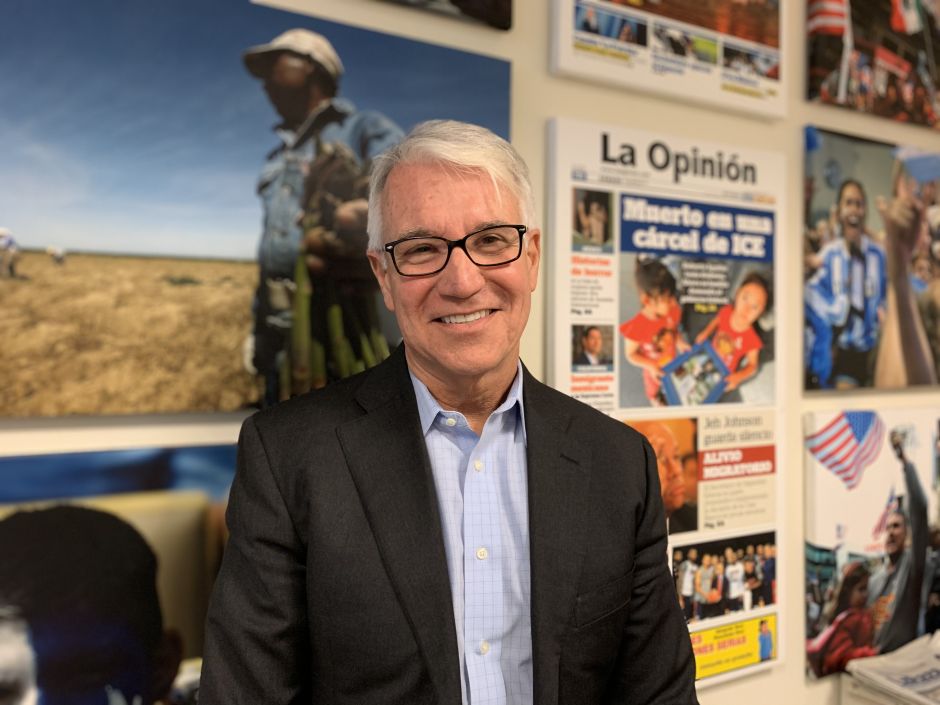
George Gascón lost the election to be a Los Angeles county prosecutor. (Araceli Martínez / The Opinion).
Local results
In the election for Los Angeles County prosecutor, the incumbent Jackie Lacey won the election by obtaining 50.09% of the vote. The former San Francisco prosecutor, George Gascón obtained only 26.83% of the votes, while very close, was followed by independent former public defender Rachel Rossi, who got 22.47% of the vote.
At the Los Angeles Council level, it stands out the triumph of former Senate President Kevin De León, who won a seat for District 14 in the Los Angeles Council It covers the neighborhoods of Eagle Rock, Boyle Heights, Highland Park and downtown Los Angeles. Kevin won with 53.52% of the votes. He left behind Monica Garcia, a member of the Los Angeles Unified School District Board, who won 11.32% of votes.
De León will occupy the seat that Councilman José Huizar will vacate in November.
For District 10 of the Angelino Council, which encompasses southern Los Angeles, Supervisor Mark Ridley Thomas will go to a second round in the November general election in front of attorney and community activist Grace Yoo. Ridley Thomas obtained 46.87% of the votes against 24.80% of Yoo. The Afro-Latin Aura Vásquez, an environmental activist, came in third with 17.89% of the vote.
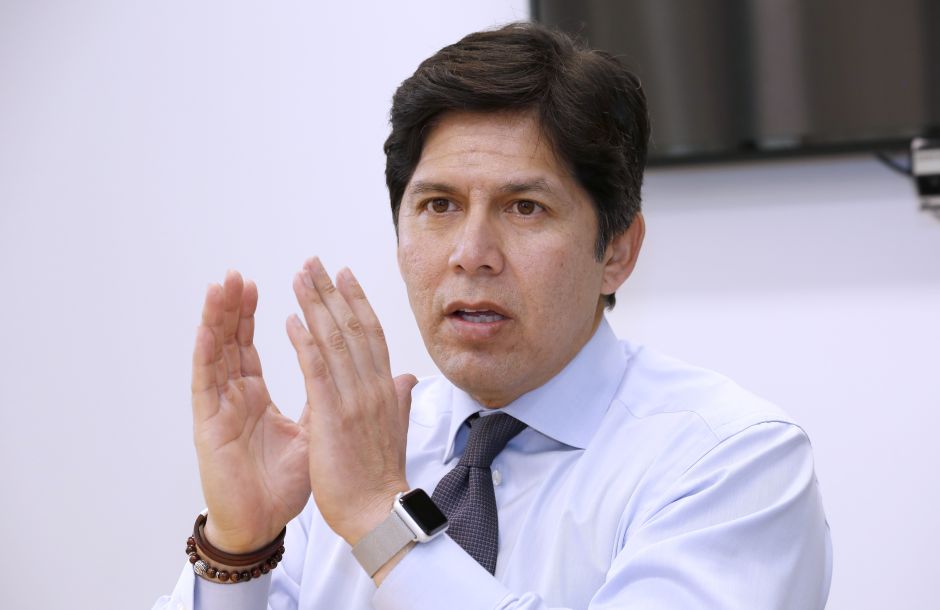
In the dispute over District 2 of the Los Angeles County Board of Supervisors that will leave Ridley Thomas vacant at the end of the year, former council president Herb J. Wesson will face a second round in November against former Senator Holly Mitchell. Neither of them got 50% of the votes. Wesson achieved 32.09% and Mitchell, 25.5%.
At the level of judges, Adam Montalbán, a Los Angeles County prosecutor who lived many years without papers, won the election to be a judge of the Los Angeles Superior Court with 63.3% of the vote to the exactor and television commentator Troy Slaten.
In the contests for the state legislature, the fight for District 57 of the San Gabriel Valley in Los Angeles County stands out. Sylvia Rubio, sister of Senator Susan Rubio and Assemblywoman Blanca Rubio, lagged behind in third place with 17.8% of the vote in her attempt to go to the Assembly. They passed the second round, the Republican Jessica Martinez with 29.52% of the vote, and Lisa Calderón with 19.74% of the vote. Calderón is stepmother of Ian Calderón, the current assemblyman, who leaves office at the end of the year.
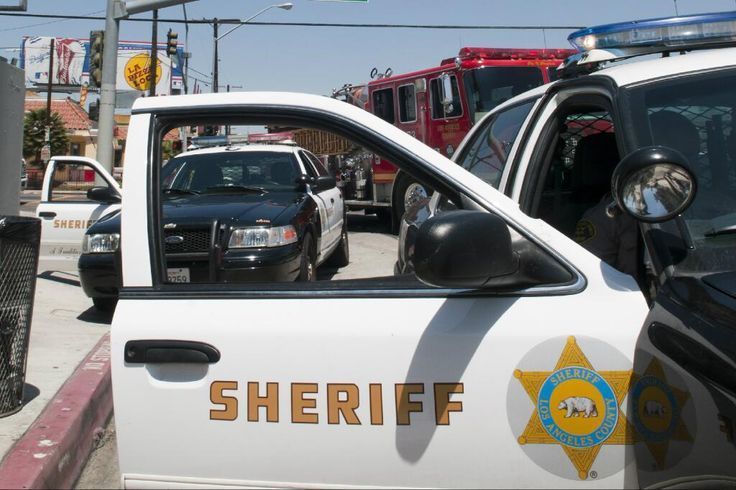
Yes to watch the Sheriff no to school bonds
Measure R won with 71.17% of the votes against 28.83% of those who opposed. Its approval means that civil surveillance will be strengthened over the Los Angeles County Sheriff's Department, and will improve psychiatric care, addiction treatment and other services for prisoners in county jails.
The measure 13 that sought to authorize bonds for 15 billion dollars to modernize public schools from preschool to university, lost with 55.9% of votes against, while only 44.1% of the votes supported it. It was the largest school bond in the history of California that sought to bring down the great lag in the repair of school facilities estimated at an amount of 100,000 million dollars. But opponents said the state would borrow too much as it would have had to pay $ 740 million each year plus $ 11 billion in interest.
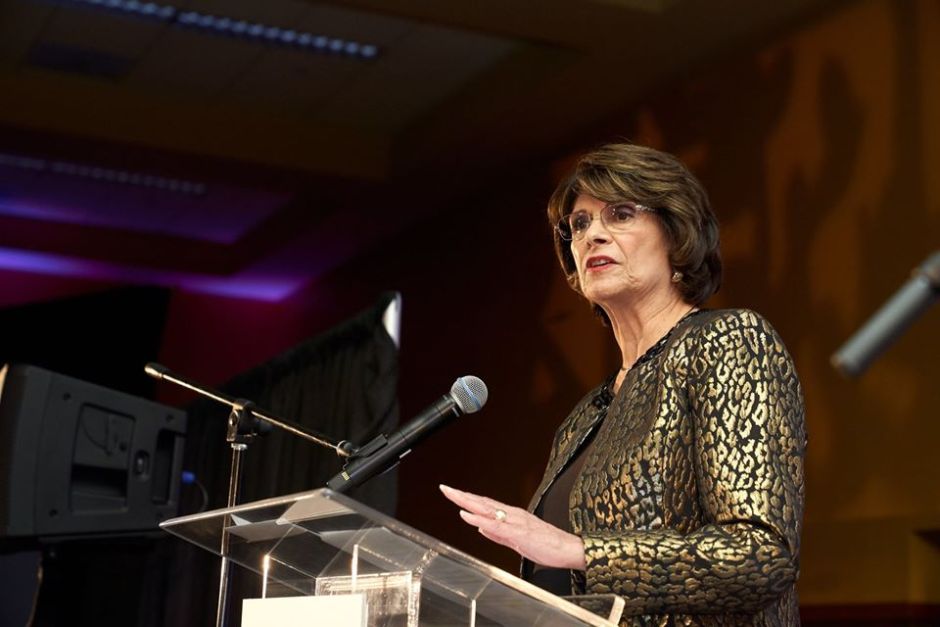
Fierce congressional elections
The surprise of this election was that Congresswoman Lucille Roybal-Allard lost to Republican Antonio Delgado, followed by Democrat David John Sánchez. Roybal-Allard represents the 40th district comprising Downey, Vernon, Commerce and Bell Gardens. He did not get 50% of the votes, while Delgado and Sánchez were tied with 14.3%. After the tiebreaker it will be known who will be his rival in the November election. Roybal-Allard has been a congressman since 1993.
In the 39th district that corresponds to Fullertone in Orange County, Republican Young Kim won with 50.8% of votes to Gil Cisneros, the current Democratic congressman who was 44.3% of the vote. Both faces will be seen on the second round of November.
In the 22nd district of Fresno, Trump's ally, Congressman Devin Nunes took the lead with 59.4% of the vote, leaving Hispanic Democrat Phil Arballo behind with 23.5% of the vote. However, they will also compete again in November.
In Fresno's 16th district, Fresno's lawyer and councilor, Esmeralda Soria stayed on the road with 18.4% of the vote. The current Democratic Congressman Jim Costa with 37.5% of the votes, and Republican Kevin Cookingham with 38.5%, went on a second round.
For the Mexican-Palestinian district 50 of San Diego, a moderate Democrat Ammar Campa Najjar obtained 34.4% of the votes against 24.9% of Republican Darrel Issa, who intends to return to Congress after a two-year recess. Both contend for the seat he left after his resignation Duncan Hunter, who pleaded guilty to embezzlement.

